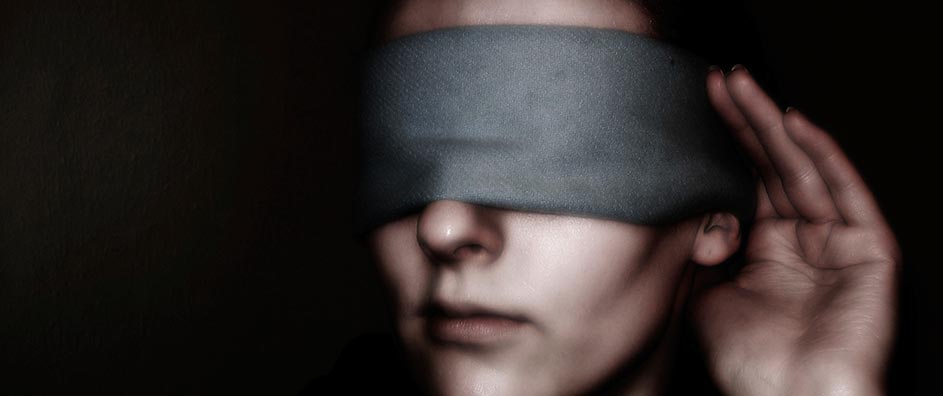In the pursuit of understanding the Baha’i perspective on concepts such as taboo and purity, one striking topic emerges: the idea of “unclean blood.” This notion transcends mere biological implications, delving into the realms of ethics, spirituality, and communal responsibility. The Baha’i Faith teaches that humanity is a single entity, and thus, the ways we perceive and treat one another are paramount in shaping a society grounded in justice and unity. This article will explore the implications of “unclean blood” from a Baha’i milieu, encouraging readers to reevaluate preconceptions regarding purity and taboo.
Firstly, it is imperative to define the concept of purity within the Baha’i framework. Unlike conventional notions of purity, which often hinge upon physical and ceremonial cleanliness, Baha’i teachings emphasize moral and spiritual purity. To focus purely on the external aspects of cleanliness might lead one to overlook the more profound ethical dimensions that guide human interactions. The notion of “unclean blood” can thus be understood metaphorically, representing the moral impurities that arise from prejudice, hatred, and social injustices.
Baha’u’llah, the founder of the Baha’i Faith, fervently denounced the social practices that perpetuated class divisions and discrimination. He urged that not only the body but also the heart and mind must be cleansed of negative emotions, biases, and societal taboos. In this light, “unclean blood” serves as a metaphor for the moral failings that can stain human interactions and relationships.
Furthermore, the Baha’i Faith advocates for a transformative and liberating understanding of such taboos. Rather than viewing certain ideas or groups as impure or unworthy, a Baha’i perspective encourages individuals to challenge these societal constructs. The teachings promote the inherent nobility and worth of every human being, thereby rejecting the stigma associated with “unclean blood” as a divine prohibition. In a world rife with divisions, this viewpoint profoundly urges unity and compassion, rather than separation and disdain.
Baha’is also recognize that societal taboos often stem from deep-rooted cultural narratives influenced by historical, religious, and sociopolitical forces. The interplay between tradition and modernity highlights the challenges that many face when questioning established beliefs. However, through the lens of Baha’i teachings, individuals are encouraged to critically assess these narratives and consider their relevance and applicability to contemporary life. By engaging in this reflective practice, one can begin to understand that the purity of one’s heart and soul is ultimately of greater significance than adhering to outdated customs.
One particularly innovative aspect of Baha’i teachings is the advocacy for individual investigation of truth. In the quest for understanding purity and taboo, it becomes essential for each person to embark on their own journey of exploration. This means questioning not only societal norms but also one’s own biases. Baha’is understand that true enlightenment emerges through spiritual education and the acquisition of knowledge, empowering individuals to eschew prejudiced viewpoints that may once have felt comfortable.
Interestingly, the theme of “unclean blood” also serves as a reminder of the interconnectedness of humanity. The Baha’i teachings extoll the virtues of collective responsibility and oneness. Each individual bears a moral duty to contribute to the elevation of society. Therefore, the recognition and transformation of “unclean blood” in this context symbolize a commitment to fostering an equitable society, free from the chains of prejudice and ignorance. Engaging in genuine acts of kindness and equity towards others can purify not just oneself but can have a cascading effect on one’s community.
In addition, the Baha’i Faith highlights the importance of consultation in addressing issues surrounding taboo and purity. Consultation is not merely a method for reaching consensus; it serves as a vehicle for deeper understanding and empathy. By engaging in dialogue with diverse perspectives, particularly those traditionally viewed as “other,” individuals can dismantle preconceived notions of purity and learn to appreciate the rich tapestry of human experience. The process cultivates an atmosphere of respect, allowing for the creation of a shared understanding that transcends superficial divisions.
Moreover, cultivating spiritual virtues also plays a significant role in reframing the discourse around “unclean blood.” Virtues such as kindness, compassion, and forgiveness are pivotal in navigating the complexities of human relationships. When individuals embody these ideals, they not only cleanse their own “blood” but also contribute to the purification of the collective human experience. Thus, the journey toward purity does not exist in isolation; it is communal and contributory, reinforcing the very fabric of society.
In conclusion, the topic of “unclean blood” within the Baha’i teachings serves as a poignant focal point for examining the intersections of purity, taboo, and societal well-being. It invites a profound shift in perspective, urging individuals to cultivate moral and spiritual purity while rejecting societal classifications that divide. By engaging in personal exploration, fostering unity, and practicing consultation, Baha’is contribute to the collective healing of humanity. This holistic understanding of purity presents an opportunity to transcend conventional boundaries, encouraging global advancement and interconnectedness. In essence, the Baha’i view on “unclean blood” challenges us not only to cleanse ourselves but also to elevate the entirety of humanity, nurturing a world characterized by love, respect, and unity.
